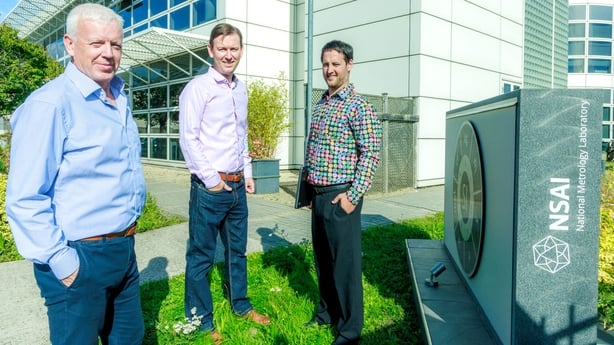The National Standards Authority has said it will be making further representations to Government to persuade it to have co-ordinated universal time placed in legislation as the official time scale for the country.
Currently, Greenwich Mean Time (GMT) is officially in use, but a forum in Dublin heard calls for it to be replaced with the more accurate atomic time scale in order to enhance time dependent infrastructure.
The inaugural Time & Sync Forum heard that modern navigation, communications, and high frequency trading are all are highly dependent on exact timing.
The most accurate time is recorded on atomic clocks. Ireland's atomic clocks are maintained at the National Metrology Laboratory and form the basis of the National Time Grid.
It is designed to ensure accuracy and stability amid warnings that slippage of just a few nanoseconds could lead to malfunctions and financial losses.
The forum heard that this time scale should be used instead of GMT - which is highly dependent on the global positioning system or GPS.

"With all of the different conflicts that are happening at the moment around the globe ... if the GPS was to go down, we literally have no time," said David Fleming, Technical Manager of the Time Frequency and Acoustics Laboratories, National Metrology Laboratory.
"So in my laboratory in Glasnevin, we maintain atomic clocks which could serve as a backup for resilient timing in the country ... in practical terms, it means that we could possibly link our financial services centre to the clocks maintained in the lab," Mr Fleming said.
"Essentially all critical infrastructure could make reference back to the clocks in the laboratory in Glasnevin," he added.
We need your consent to load this rte-player contentWe use rte-player to manage extra content that can set cookies on your device and collect data about your activity. Please review their details and accept them to load the content.Manage Preferences
The NSAI said it would also provide insurance against the relatively new phenomenon of false GPS signalling - also known as jamming and spoofing, which can badly impact navigation.
The authority said they hope to establish fiber optic links between atomic time laboratories in Dublin, London and Europe, to enhance the resiliency of our timing infrastructure.
Minister for Enterprise, Tourism and Employment Peter Burke had earlier welcomed the holding of the Time & Sync Forum.
"Position, navigation, and timing technologies are a core part of the work of a number of industries that are cornerstones of the Irish economy," Mr Burke said.
Additional reporting Joan O'Sullivan







